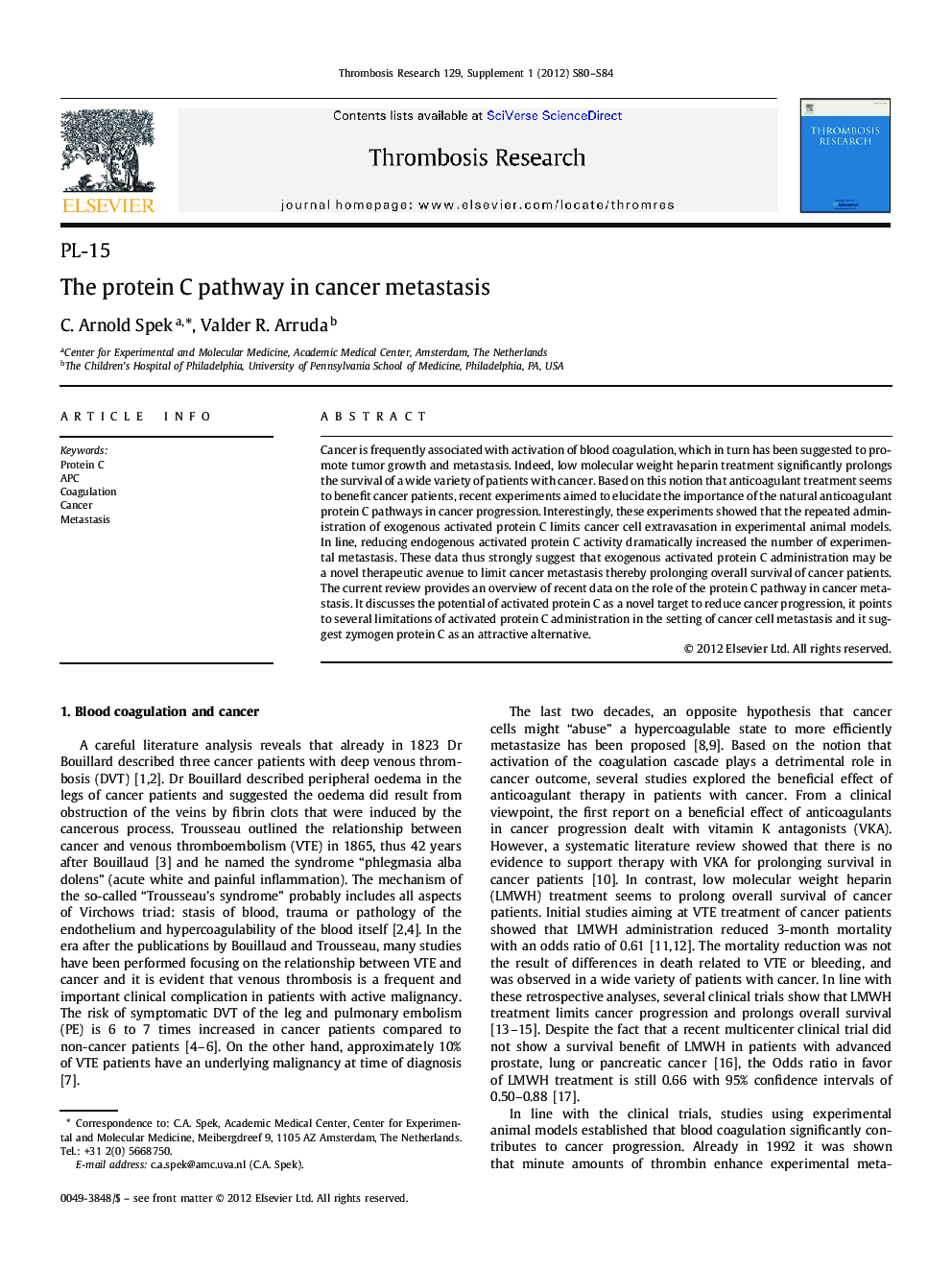| Article ID | Journal | Published Year | Pages | File Type |
|---|---|---|---|---|
| 3028535 | Thrombosis Research | 2012 | 5 Pages |
Cancer is frequently associated with activation of blood coagulation, which in turn has been suggested to promote tumor growth and metastasis. Indeed, low molecular weight heparin treatment significantly prolongs the survival of a wide variety of patients with cancer. Based on this notion that anticoagulant treatment seems to benefit cancer patients, recent experiments aimed to elucidate the importance of the natural anticoagulant protein C pathways in cancer progression. Interestingly, these experiments showed that the repeated administration of exogenous activated protein C limits cancer cell extravasation in experimental animal models. In line, reducing endogenous activated protein C activity dramatically increased the number of experimental metastasis. These data thus strongly suggest that exogenous activated protein C administration may be a novel therapeutic avenue to limit cancer metastasis thereby prolonging overall survival of cancer patients. The current review provides an overview of recent data on the role of the protein C pathway in cancer metastasis. It discusses the potential of activated protein C as a novel target to reduce cancer progression, it points to several limitations of activated protein C administration in the setting of cancer cell metastasis and it suggest zymogen protein C as an attractive alternative.
